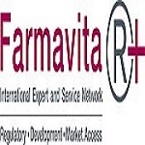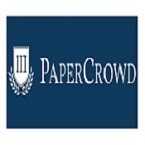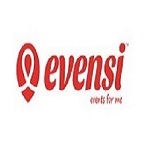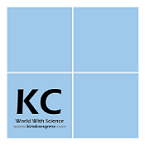Renowned Speakers

Mihir Raval
Saurashtra University India

Michael Forstner
Head of Pharmacovigilance Europe Boehringer Ingelheim Australia

Mirko Diksic
McGill University Canada
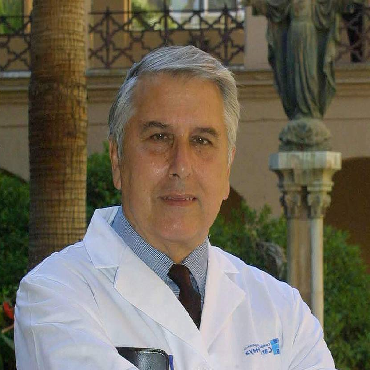
Segundo Mesa Castillo
Neurologists Psychiatric Hospital of Havana Cuba

Theo Rasing
Radboud University Netherlands

Larisa Klapshina
Nizhny Novgorod State University/IOMC RAS, Russia

Hyungil Jung
Yonsei University South Korea

Mustafa Abdullah Yilmaz
Dicle University Turkey
Recommended Global Pharmaceutical Sciences Webinars & Conferences
Asia Pacific & Middle East
PHARMACEUTICA 2024
About Conference
After a successful conference of Pharmaceutica 2023, Pharma Conferences team cordially invites participants from all over the world to attend "25th International Conference and Exhibition on Pharmaceutics & Novel Drug Delivery Systems" slated on February 26-27, 2024 Dubai, UAE. This Pharmaceutics Conference includes a wide range of Keynote presentations, Oral talks, Poster presentations, Symposia, Workshops, Exhibitions and Career development programs.
Novel drug delivery systems Conference is one of the well-established conference among Pharmaceutical Conferences organized by Conference Series
Pharmaceutica 2024 covers various aspects of Bio-Pharmaceutics, Pharmaceutical Chemistry, Drug Targeting and Design, Pharmacokinetics and Pharmacodynamics in Drugs, Pharmaceutical Formulation, Pharmaceutical Manufacturing, Pharmaceutical Nanotechnology, Novel Drug Delivery Systems, Smart Drug Delivery Systems, Nanomedicine and Biomedical Applications, Biomaterials in Drug Delivery, Vaccine Drug Delivery Systems, Medical Devices for Drug Delivery, Biologics & Biosimilars, Pharmaceutical Analysis, Pharmaceutical Process Validation, Pharmaceutical Packaging, Clinical Trials and Clinical Research, Pharmacogenetics and Genomics, Regulatory Affairs and Intellectual Property Rights, Industrial and Physical Pharmacy, Clinical and Hospital Pharmacy, Pharmacovigilance and Drug Safety, Pharmacy Education and Practice
2024 Highlights:
- 200+ Participation (70% Industry: 30% Academia)
- 9+ Keynote Speakers
- 30+ Plenary Speakers
- 3+ Exhibitors
- 14 Innovative Educational Sessions
- B2B Meetings
Why you should attend?
- Access to senior-level executives from leading international pharmaceutical & biotechnology companies
- Exposure to new and exciting companies ready for partnerships and licensing opportunities in the U.S., Europe and Asia
- Tremendous networking opportunities to meet numerous U.S., European, Japanese and Asian biotech and pharmaceutical companies in one place at one time
- Use of state-of-the-art partnering technology
- Targeted partner selections through proprietary screening process
- Get to the heart of why formulation and delivery strategies fail. Dissect the challenges before looking for concrete solutions.
- Discover how advances in the sector are impacting both large and small molecule drugs.
- Explore tried and tested routes to improve bioavailability.
- Understand how to develop the right formulation and delivery strategy with a strong scientific, clinical and commercial mind set.
- Discover the latest innovations in drug delivery devices.
- Be inspired by innovative case studies and realize the potential impact on your formulation or delivery processes.
- Engage in the exciting event format, with round tables, panels, showcases, speed networking and multiple conference tracks.
- Share experiences, insights and strategies in interactive peer to peer round tables.
- Hear more perspectives in one place – from large medium and small organizations from pharma, biotech and academia.
- Discover how scientific formulation advancements are being implemented in practice.
Who Should Attend
- Directors, CEO’s of Organizations
- Business Development Managers
- Chief Scientific Officers
- R&D Researchers from Biosimilar and Biologics Industries
- Professors, Associate Professors, Assistant Professors
- PhD Scholars
- Patent Attorneys
- Intellectual Property Attorneys
- Investment Analysts
- Association, Association presidents and professionals
- Drug development and discovery companies
- Formulation and Pharma Manufacturing companies
- Medical technology companies
- Universities and institutes
- Intellectual property and legal organizations
- Investors and financial services providers
- Bio-clusters and incubators
- Government and public support agencies
- Cosmetic companies
- Generic drugs and Biosimilars
Sessions & Tracks
Track 1: Bio-Pharmaceutics
Bio Pharmaceutics conferences plays an important role in drug discovery like drug disposition, Innovations in clinical development, Pharmaceutical technology, Pharmaceutics and drug delivery, Drug design, Targeted drug, gene delivery, Sustained drug delivery system, Routes of administration, Fundamental drug development.
Related Associations and Societies: International Pharmaceutical Federation | Pharmaceutical Gup of the European Union | The Society of Hospital Pharmacists of Australia | Canadian Pharmacists Association | Pharmacy in China | Danish Association of Pharmaconomists | Pharmaceutical Society of Ireland | The Pharmaceutical Association of Israel | Pharmaceutical Society Of New Zealand | Pakistan Pharmacists Association | Royal Pharmaceutical Society | American Society of Consultant Pharmacists | American College of Clinical Pharmacy
Track 2: Pharmaceutical Chemistry
Pharmaceutical Chemistry is the study of drug design to optimize pharmacokinetics and pharmacodynamics, and synthesis of new drug molecules. Pharmaceutical Chemistry is a branch of chemistry that deals with the chemical, biochemical and pharmacological aspects of drugs. It includes synthesis/isolation, identification, structural elucidation, structural modification, structural activity relationship (SAR) studies, and study of the chemical characteristics, biochemical changes after drug administration and their pharmacological effects as well as analysis of drugs. In more simple words it is more broader than medicinal chemistry in its application also in the fields of analysis, identification, as well as, structural elucidation of drugs.
Related Associations and Societies: Pharmaceutical Gup of the European Union | International Pharmaceutical Federation | The Society of Hospital Pharmacists of Australia | Canadian Pharmacists Association | Pharmacy in China | Danish Association of Pharmaconomists | Pharmaceutical Society of Ireland | The Pharmaceutical Association of Israel | Pharmaceutical Society Of New Zealand | Pakistan Pharmacists Association | Royal Pharmaceutical Society | American Society of Consultant Pharmacists | American College of Clinical Pharmacy
Track 3: Drug Targeting and Design
Drug design, often referred to as rational drug design or simply rational design, is the inventive process of finding new medications based on the knowledge of a biological target. The drug is most commonly an organic small molecule that activates or inhibits the function of a biomolecule such as a protein, which in turn results in a therapeutic benefit to the patient. In the most basic sense, drug design involves the design of molecules that are complementary in shape and charge to the biomolecular target with which they interact and therefore will bind to it. Drug design frequently but not necessarily relies on computer modeling techniques. This type of modeling is sometimes referred to as computer-aided drug design. Finally, drug design that relies on the knowledge of the three-dimensional structure of the biomolecular target is known as structure-based drug design. In addition to small molecules, biopharmaceuticals and especially therapeutic antibodies are an increasingly important class of drugs and computational methods for improving the affinity, selectivity, and stability of this protein-based therapeutics have also been developed.
Related Associations and Societies: International Pharmaceutical Federation | Pharmaceutical Gup of the European Union | The Society of Hospital Pharmacists of Australia | Canadian Pharmacists Association | Pharmacy in China | Danish Association of Pharmaconomists | Pharmaceutical Society of Ireland | The Pharmaceutical Association of Israel | Pharmaceutical Society Of New Zealand | Pakistan Pharmacists Association | Royal Pharmaceutical Society | American Society of Consultant Pharmacists | American College of Clinical Pharmacy
Track 4: Pharmacokinetics and Pharmacodynamics in Drugs
Pharmacokinetics is currently defined as the study of the time course of drug absorption, distribution, metabolism, and excretion. Clinical pharmacokinetics is the application of pharmacokinetic principles to the safe and effective therapeutic management of drugs in an individual patient. Primary goals of clinical pharmacokinetics include enhancing efficacy and decreasing toxicity of a patient’s drug therapy. The development of strong correlations between drug concentrations and their pharmacologic responses has enabled clinicians to apply pharmacokinetic principles to actual patient situations.
Pharmacodynamics refers to the relationship between drug concentration at the site of action and the resulting effect, including the time course and intensity of therapeutic and adverse effects. The effect of a drug present at the site of action is determined by that drug’s binding with a receptor.
Related Associations and Societies: American College of Clinical Pharmacy | International Pharmaceutical Federation | Pharmaceutical Gup of the European Union | The Society of Hospital Pharmacists of Australia | Canadian Pharmacists Association | Pharmacy in China | Danish Association of Pharmaconomists | Pharmaceutical Society of Ireland | The Pharmaceutical Association of Israel | Pharmaceutical Society Of New Zealand | Pakistan Pharmacists Association | Royal Pharmaceutical Society | American Society of Consultant Pharmacists
Track 5: Pharmaceutical Formulation
Pharmaceutics is the study of relationships between preformulation, pharmaceutical formulation, delivery, disposition and clinical response. The inherent instability nature of a new drug will alter its desired form into undesired form when presented in a suitable dosage form with the excipient/s upon storage. NDDS conference will discuss on early approaches, present scenario and future prospects of preformulation events. There are more than 1400 sustained or controlled release drugs have been approved all over the world. Pharmaceutical conferences discuss the state-of-art technology being applied and involve advances in formulation studies.
Related Associations and Societies: Pharmaceutical Gup of the European Union | International Pharmaceutical Federation | The Society of Hospital Pharmacists of Australia | Canadian Pharmacists Association | Pharmacy in China | Danish Association of Pharmaconomists | Pharmaceutical Society of Ireland | The Pharmaceutical Association of Israel | Pharmaceutical Society Of New Zealand | Pakistan Pharmacists Association | Royal Pharmaceutical Society | American Society of Consultant Pharmacists | American College of Clinical Pharmacy
Track 6: Pharmaceutical Manufacturing
Drug manufacturing is the process of industrial-scale synthesis of pharmaceutical drugs by pharmaceutical companies. The process of drug manufacturing can be broken down into a series of unit operations, such as milling, granulation, coating, tablet pressing, and others
Related Associations and Societies: American College of Clinical Pharmacy | International Pharmaceutical Federation | Pharmaceutical Gup of the European Union | The Society of Hospital Pharmacists of Australia | Canadian Pharmacists Association | Pharmacy in China | Danish Association of Pharmaconomists | Pharmaceutical Society of Ireland | The Pharmaceutical Association of Israel | Pharmaceutical Society Of New Zealand | Pakistan Pharmacists Association | Royal Pharmaceutical Society | American Society of Consultant Pharmacists
Track 7: Pharmaceutical Nanotechnology
Size reduction is a fundamental unit operation having important applications in pharmacy. It helps in improving solubility and bioavailability, reducing toxicity, enhancing release and providing better formulation opportunities for drugs. In most of the cases, size reduction is limited to micron size range, for example, various pharmaceutical dosage forms like powder, emulsion, suspension etc. Drugs in the nanometer size range enhance performance in a variety of dosage forms. Major advantages of nano sizing include (i) increased surface area, (ii) enhanced solubility, (iii) increased rate of dissolution, (iv) increased oral bioavailability, (v) more rapid onset of therapeutic action, (vi) less amount of dose required, (vii) decreased fed/fasted variability, and (viii) decreased patient-to-patient variability.
Pharmaceutical nanotechnology has provided more fine-tuned diagnosis and focused treatment of disease at a molecular level. Pharmaceutical nanotechnology is most innovative and highly specialized field, which will revolutionize the pharmaceutical industry in near future. Pharmaceutical nanotechnology presents revolutionary opportunities to fight against many diseases. It helps in detecting the antigen associated with diseases such as cancer, diabetes mellitus, neurodegenerative diseases, as well as detecting the microorganisms and viruses associated with infections. It is expected that in next 10 years market will be flooded with nanotechnology devised medicine.
Related Associations and Societies: International Pharmaceutical Federation | Pharmaceutical Gup of the European Union | The Society of Hospital Pharmacists of Australia | Canadian Pharmacists Association | Pharmacy in China | Danish Association of Pharmaconomists | Pharmaceutical Society of Ireland | The Pharmaceutical Association of Israel | Pharmaceutical Society Of New Zealand | Pakistan Pharmacists Association | Royal Pharmaceutical Society | American Society of Consultant Pharmacists | American College of Clinical Pharmacy
Track 8: Nano particulate Drug Delivery Systems
Nanoparticles (NPs) occur naturally and have been in existence for thousands of years as products of combustion and cooking of food. Nanomaterials differ significantly from other materials due to the following two major principal factors: the increased surface area and quantum effects. These factors can enhance properties such as reactivity, strength, electrical characteristics, and in vivo behavior. As the particle size decreases, a greater proportion of atoms are found at the surface compared to inside. An NP has a much greater surface area per unit mass compared with larger particles, leading to greater reactivity. In tandem with surface area effects, quantum effects can begin to dominate the properties of matter as size is reduced to the nanoscale. These can affect the optical, electrical, and magnetic behavior of materials. There in vivo behavior can be from increased absorption to high toxicity of nanomaterial’s. New drug carrier systems are one can name soluble polymers, micro particles made of insoluble (or) biodegradable natural and synthetic polymers, microcapsules, cells, cell ghosts, lipoproteins, liposomes and micelles.
Key players in the market include Amgen, Inc., AstraZeneca plc, Eli Lilly & Co., Ipsen S.A., Merck & Co., Novartis AG, Novo Nordisk A/S, Roche Holdings AG, Sanofi, Takeda Pharmaceutical Company Limited, and Teva Pharmaceutical Industries Limited. Leading API manufacturers include Bachem Holding AG, PolyPeptide Group, and Peptisyntha Inc. at the pharmaceutical companie’s conference
Related Associations and Societies: American College of Clinical Pharmacy | International Pharmaceutical Federation | Pharmaceutical Gup of the European Union | The Society of Hospital Pharmacists of Australia | Canadian Pharmacists Association | Pharmacy in China | Danish Association of Pharmaconomists | Pharmaceutical Society of Ireland | The Pharmaceutical Association of Israel | Pharmaceutical Society Of New Zealand | Pakistan Pharmacists Association | Royal Pharmaceutical Society | American Society of Consultant Pharmacists
Track 9: Smart Drug Delivery Systems
Smart drug delivery is a method of delivering medication to a patient in a manner that increases the concentration of the medication in some parts of the body relative to others. This means of delivery is largely founded on nanomedicine, which plans to employ nanoparticle-mediated drug delivery in order to combat the downfalls of conventional drug delivery. These nanoparticles would be loaded with drugs and targeted to specific parts of the body where there is solely diseased tissue, thereby avoiding interaction with healthy tissue. The goal of targeted drug delivery systems is to prolong, localize, target and have a protected drug interaction with the diseased tissue. The conventional drug delivery system is the absorption of the drug across a biological membrane, whereas the targeted release system releases the drug in a dosage form. The advantages to the targeted release system is the reduction in the frequency of the dosages taken by the patient, having a more uniform effect of the drug, reduction of drug side-effects, and reduced fluctuation in circulating drug levels. The disadvantage of the system is high cost, which makes productivity more difficult and the reduced ability to adjust the dosages.
Related Associations and Societies: Pharmaceutical Gup of the European Union | International Pharmaceutical Federation | The Society of Hospital Pharmacists of Australia | Canadian Pharmacists Association | Pharmacy in China | Danish Association of Pharmaconomists | Pharmaceutical Society of Ireland | The Pharmaceutical Association of Israel | Pharmaceutical Society Of New Zealand | Pakistan Pharmacists Association | Royal Pharmaceutical Society | American Society of Consultant Pharmacists | American College of Clinical Pharmacy
Track 10: Nanomedicine and Biomedical Applications
Nanomedicine is simply the nanotechnology applications in a healthcare setting and the majority of benefits that have already been seen involve the use of nanoparticles to improve the behavior of drug substances and in drug delivery. Today, nanomedicine conferences are used globally to improve the treatments and lives of patients suffering from a range of disorders including ovarian and breast cancer, kidney disease, fungal infections, elevated cholesterol, menopausal symptoms, multiple sclerosis, chronic pain, asthma and emphysema. Nanomedicine has the potential to develop radical new therapies based on an unprecedented control over both intracellular processes and the extracellular environment at the nanometer scale. To create precise solutions for intricate medical challenges in the area of wound healing, tissue regeneration and mitochondrial disease physical scientists, medical doctors, and industrial partners, work closely in the Radboud Nanomedicine Alliance. The National Nanotechnology Initiative expects new commercial applications in the pharmaceutical industry that may include advanced delivery systems, new therapies, and in vivo imaging.
Related Associations and Societies: International Pharmaceutical Federation | Pharmaceutical Gup of the European Union | The Society of Hospital Pharmacists of Australia | Canadian Pharmacists Association | Pharmacy in China | Danish Association of Pharmaconomists | Pharmaceutical Society of Ireland | The Pharmaceutical Association of Israel | Pharmaceutical Society Of New Zealand | Pakistan Pharmacists Association | Royal Pharmaceutical Society | American Society of Consultant Pharmacists | American College of Clinical Pharmacy
Track 11: Biomaterials in Drug Delivery
A biomaterial is any substance that has been engineered to interact with biological systems for a medical purpose - either a therapeutic (treat, augment, repair or replace a tissue function of the body) or a diagnostic one. Biomaterials conferences can be derived either from nature or synthesized in the laboratory using a variety of chemical approaches utilizing metallic components, polymers, ceramics or composite materials. They are often used and/or adapted for a medical application, and thus comprise whole or part of a living structure or biomedical device which performs, augments, or replaces a natural function. Such functions may be benign, like being used for a heart valve, or may be bioactive with a more interactive functionality such as hydroxy-apatite coated hip implants. Biomaterials are also used every day in dental applications, surgery, and drug delivery. For example, a construct with impregnated pharmaceutical products can be placed into the body, which permits the prolonged release of a drug over an extended period of time. A biomaterial may also be an autograft, allograft or xenograft used as a transplant material.
Related Associations and Societies: American College of Clinical Pharmacy | International Pharmaceutical Federation | Pharmaceutical Gup of the European Union | The Society of Hospital Pharmacists of Australia | Canadian Pharmacists Association | Pharmacy in China | Danish Association of Pharmaconomists | Pharmaceutical Society of Ireland | The Pharmaceutical Association of Israel | Pharmaceutical Society Of New Zealand | Pakistan Pharmacists Association | Royal Pharmaceutical Society | American Society of Consultant Pharmacists
Track 12: Vaccine Drug Delivery Systems
Vaccine is a material that induces an immunologically mediated resistance to a disease but not necessarily an infection. Vaccines are generally composed of killed or attenuated organisms or subunits of organisms or DNA encoding antigenic proteins of pathogens. Sub-unit vaccines though exceptionally selective and specific in reacting with antibodies often fail to show such reactions in circumstances such as shifts in epitopic identification center of antibody and are poorly immunogenic. Delivery of antigens from oil-based adjuvants such as Freunds adjuvant lead to a reduction in the number of doses of vaccine to be administered but due to toxicity concerns like inductions of granulomas at the injection site, such adjuvants are not widely used. FDA approved adjuvants for human uses are aluminium hydroxide and aluminium phosphate in the form of alum. Hence, search for safer and potent adjuvants resulted in the formulations of antigen into delivery systems that administer antigen in particulate form rather than solution form.
Other reasons driving the development of vaccines as controlled drug delivery systems are as follows:
- Immunization failure with conventional immunization regimen involving prime doses and booster doses, as patients neglect the latter. Vaccines delivery systems on the other hand:
- Allow for the incorporation of doses of antigens so that booster doses are no longer necessary as antigens are released slowly in a controlled manner.
- Control the spatial and temporal presentation of antigens to the immune system there by promoting their targeting straight to the immune cells.
Related Associations and Societies: Pharmaceutical Gup of the European Union | International Pharmaceutical Federation | The Society of Hospital Pharmacists of Australia | Canadian Pharmacists Association | Pharmacy in China | Danish Association of Pharmaconomists | Pharmaceutical Society of Ireland | The Pharmaceutical Association of Israel | Pharmaceutical Society Of New Zealand | Pakistan Pharmacists Association | Royal Pharmaceutical Society | American Society of Consultant Pharmacists | American College of Clinical Pharmacy
Track 13: Medical Devices for Drug Delivery
In this session we will focus on medical devices designed for drug delivery conferences through the pulmonary and nasal routes. These routes are of interest for local delivery, as in asthma, but also for rapid delivery of drugs to the system circulation and direct delivery to the central nervous system. Devices that account for specific anatomical and physiological features of the intranasal and pulmonary routes will be featured. Drug delivery devices are specialized tools for the delivery of a drug or therapeutic agent via a specific route of administration. Such devices are used as part of one or more medical treatments. Many in the industry have long felt overly burdened by what they consider to be an unnecessarily complex approval process. Critics claim it impedes innovation and delays the availability of better health care. In order to help innovators bring health care to the public Pharmaceutica 2024 hosts drug delivery conferences throughout the year.
Related Associations and Societies: International Pharmaceutical Federation | Pharmaceutical Gup of the European Union | The Society of Hospital Pharmacists of Australia | Canadian Pharmacists Association | Pharmacy in China | Danish Association of Pharmaconomists | Pharmaceutical Society of Ireland | The Pharmaceutical Association of Israel | Pharmaceutical Society Of New Zealand | Pakistan Pharmacists Association | Royal Pharmaceutical Society | American Society of Consultant Pharmacists | American College of Clinical Pharmacy
Track 14: Biologics & Biosimilars
Biologics are medicines made from living cells through highly complex manufacturing processes and must be handled and administered under carefully monitored conditions. Biologics are used to prevent, treat, diagnose, or cure a variety of diseases including cancer, chronic kidney disease, autoimmune disorders, and infectious diseases. Euro Biosimilars is exactly what its name implies — it is a biologic that is “similar” to another biologic drug already approved by the FDA. Under U.S. law, a biosimilar is approved based on a showing that it is “highly similar” to an FDA-approved biological product, known as a reference product. It may not have any clinically meaningful differences in terms of safety and effectiveness from the reference product.
Related Associations and Societies: Pharmaceutical Society of New Zealand | Royal Pharmaceutical Society | American College of Clinical Pharmacy | International Pharmaceutical Federation | Pharmaceutical Gup of the European Union | The Society of Hospital Pharmacists of Australia | Canadian Pharmacists Association | Pharmacy in China | Danish Association of Pharmaconomists | Pharmaceutical Society of Ireland | The Pharmaceutical Association of Israel | Pakistan Pharmacists Association | American Society of Consultant Pharmacists
Track 15: Pharmaceutical Analysis
Pharmaceutical analysis is a process or a sequence of processes to identify and/or quantify a substance or drug, the components of a pharmaceutical solution or mixture or the determination of the structures of chemical compounds used in the formulations of pharmaceutical product. Analytical techniques conferences mainly used for the separation of the components from the mixture and for the determination of the structure of the compounds.
Related Associations and Societies: Royal Pharmaceutical Society | American College of Clinical Pharmacy | International Pharmaceutical Federation | Pharmaceutical Gup of the European Union | The Society of Hospital Pharmacists of Australia | Canadian Pharmacists Association | Pharmacy in China | Danish Association of Pharmaconomists | Pharmaceutical Society of Ireland | The Pharmaceutical Association of Israel | Pharmaceutical Society Of New Zealand | Pakistan Pharmacists Association | American Society of Consultant Pharmacists
Track 16: Pharmaceutical Process Validation
Quality is always an imperative prerequisite when we consider any product. Therefore, drugs must be manufactured to the highest quality levels. End-product testing by itself does not guarantee the quality of the product. Quality assurance techniques must be used to build the quality into the product at every step and not just tested for at the end. In pharmaceutical industry Process Validation performs this task to build the quality into the product because according to ISO 9000:2000, it had proven to be an important tool for quality management of pharmaceuticals.
Related Associations and Societies: Pharmaceutical Gup of the European Union | International Pharmaceutical Federation | The Society of Hospital Pharmacists of Australia | Canadian Pharmacists Association | Pharmacy in China | Danish Association of Pharmaconomists | Pharmaceutical Society of Ireland | The Pharmaceutical Association of Israel | Pharmaceutical Society Of New Zealand | Pakistan Pharmacists Association | Royal Pharmaceutical Society | American Society of Consultant Pharmacists | American College of Clinical Pharmacy
Track 17: Pharmaceutical Packaging
Packaging is one of the largest industry sectors in the world, worth several billions. Pharmaceutical packaging represents a meager percentage of this colossal market. The global healthcare industry has seen a shift in paradigm and is now skewed toward effective and meaningful packaging. Packaging was considered as an afterthought which was required merely in the final stages of manufacturing for many pharmaceutical companies about a decade ago.
Related Associations and Societies: International Pharmaceutical Federation | Pharmaceutical Gup of the European Union | The Society of Hospital Pharmacists of Australia | Canadian Pharmacists Association | Pharmacy in China | Danish Association of Pharmaconomists | Pharmaceutical Society of Ireland | The Pharmaceutical Association of Israel | Pharmaceutical Society Of New Zealand | Pakistan Pharmacists Association | Royal Pharmaceutical Society | American Society of Consultant Pharmacists | American College of Clinical Pharmacy
Track 18: Clinical Trials and Clinical Research
Clinical research aims to advance medical knowledge by studying people, either through direct interaction or through the collection and analysis of blood, tissues, or other samples.
A clinical trial involves research participants. It follows a pre-defined plan or protocol to evaluate the effects of a medical or behavioral intervention on health outcomes. By taking part in clinical trials conferences, participants not only play a more active role in their own health care, but they also can access experimental treatments and help others by contributing to medical research.
Related Associations and Societies: Royal Pharmaceutical Society | American College of Clinical Pharmacy | International Pharmaceutical Federation | Pharmaceutical Gup of the European Union | The Society of Hospital Pharmacists of Australia | Canadian Pharmacists Association | Pharmacy in China | Danish Association of Pharmaconomists | Pharmaceutical Society of Ireland | The Pharmaceutical Association of Israel | Pharmaceutical Society Of New Zealand | Pakistan Pharmacists Association | American Society of Consultant Pharmacists
Track 19: Pharmacogenetics and Genomics
Pharmacogenetics is the science that supports understanding the part that a person's hereditary make-up plays in how well a prescription functions, and additionally what symptoms are probably going to happen, enhancing our capacity to distinguish the hereditary reasons for illnesses and look for new medication targets. Pharmacogenetics alludes to hereditary contrasts in metabolic pathways which can influence singular reactions to drugs, both as far as restorative impact and additionally antagonistic impacts.
Pharmacogenomics is a quickly creating field that has essential ramifications in individualized treatment for patients and its suggestion influence tranquilize advancement issues such as medication safety, efficiency, and customized health care. Pharmacogenomics consolidates customary pharmaceutical sciences, for example, natural chemistry with explained colleague of qualities, proteins, and single nucleotide polymorphisms.
Related Associations and Societies: Pharmaceutical Society of New Zealand | Royal Pharmaceutical Society | American College of Clinical Pharmacy | International Pharmaceutical Federation | Pharmaceutical Gup of the European Union | The Society of Hospital Pharmacists of Australia | Canadian Pharmacists Association | Pharmacy in China | Danish Association of Pharmaconomists | Pharmaceutical Society of Ireland | The Pharmaceutical Association of Israel | Pakistan Pharmacists Association | American Society of Consultant Pharmacists
Track 20: Pharmaceutical Regulatory Affairs and Intellectual Property Rights
Regulatory Affairs conferences contribute essentially to the overall success of drug development, both at early pre-marketing stages and at all times post-marketing. The pharmaceutical industry deals with an increasing number of interesting drug candidates, all of which necessitate the involvement of the quality assurance in regulatory affairs department. The importance of intellectual property law is well established at all levels-statutory, administrative and judicial. It lays down minimum standards for protection and enforcement in member countries which are required to promote effective and adequate protection of intellectual property rights with a view to reducing distortions and impediments to international trade. The Agreement provides norms and standards in respect of following areas of intellectual properties are Patents, Trademarks, copyrights, Geographical indications, Industrial designs.
Related Associations and Societies: Pharmaceutical Gup of the European Union | International Pharmaceutical Federation | The Society of Hospital Pharmacists of Australia | Canadian Pharmacists Association | Pharmacy in China | Danish Association of Pharmaconomists | Pharmaceutical Society of Ireland | The Pharmaceutical Association of Israel | Pharmaceutical Society Of New Zealand | Pakistan Pharmacists Association | Royal Pharmaceutical Society | American Society of Consultant Pharmacists | American College of Clinical Pharmacy
Track 21: Industrial and Physical Pharmacy
Industrial pharmacy is a discipline which includes manufacturing, development, marketing and distribution of drug products including quality assurance of these activities. The research topics are focused on solving current general problems in pharmaceutical industry conferences, such as formulation and characterization of sticky amorphous drugs, problem-solving for paediatric medicines and miniaturization of manufacturing processes.
Physical pharmacy conferences incorporate information of arithmetic, material science and science and apply them to the pharmaceutical dose frame improvement. Physical pharmacy gives the premise to understanding the synthetic and physical wonders that oversee the in vivo and in vitro activities of pharmaceutical items.
Related Associations and Societies: International Pharmaceutical Federation | Pharmaceutical Gup of the European Union | The Society of Hospital Pharmacists of Australia | Canadian Pharmacists Association | Pharmacy in China | Danish Association of Pharmaconomists | Pharmaceutical Society of Ireland | The Pharmaceutical Association of Israel | Pharmaceutical Society Of New Zealand | Pakistan Pharmacists Association | Royal Pharmaceutical Society | American Society of Consultant Pharmacists | American College of Clinical Pharmacy
Track 22: Clinical and Hospital Pharmacy
Clinical pharmacy is a health science discipline in which pharmacists provide patient care that optimizes medication therapy and promotes health, and disease prevention. The practice of clinical pharmacy conferences embraces the philosophy of pharmaceutical care, blending a caring orientation with specialized therapeutic knowledge, experience, and judgment to ensure optimal patient outcomes. As a discipline, clinical pharmacy also has an obligation to contribute to the generation of new knowledge that advances health and quality of life. Hospital pharmacy is a specialization of this field that includes additional duties such as aiding doctors in applying drug therapy. The statements were developed by the profession to bring uniformity to the practice of hospital pharmacy.
Pharmacovigilance is the science and exercises identifying with the discovery, evaluation, comprehension and counteractive action of unfavorable impacts or some other pharmaceutical related issue. Pharmacovigilance Conferences underpins general wellbeing programs by giving solid data to the productive evaluation of the hazard advantage profile of solutions, add to the appraisal of formal, uses, symptoms, damage, viability and danger of pharmaceuticals, empowering the sheltered, sound and more viable utilization of different medications. Advance instruction, understanding and clinical preparing in Pharmacovigilance and its successful accessibility to people in general.
Related Associations and Societies: International Pharmaceutical Federation | Pharmaceutical Gup of the European Union | The Society of Hospital Pharmacists of Australia | Canadian Pharmacists Association | Pharmacy in China | Danish Association of Pharmaconomists | Pharmaceutical Society of Ireland | The Pharmaceutical Association of Israel | Pharmaceutical Society Of New Zealand | Pakistan Pharmacists Association | Royal Pharmaceutical Society | American Society of Consultant Pharmacists | American College of Clinical Pharmacy
Track 23: Novel Drug Delivery Systems
Novel drug delivery is a method of delivering medication to a patient in a manner that increases the concentration of the medication in some parts of the body relative to others. This means of delivery is largely founded on nanomedicine, which plans to employ nanoparticle-mediated drug delivery in order to combat the downfalls of conventional drug delivery. These nanoparticles would be loaded with drugs and targeted to specific parts of the body where there is solely diseased tissue, thereby avoiding interaction with healthy tissue. The goal of targeted drug delivery systems is to prolong, localize, target and have a protected drug interaction with the diseased tissue. The conventional drug delivery system is the absorption of the drug across a biological membrane, whereas the targeted release system releases the drug in a dosage form. The advantages to the targeted release system is the reduction in the frequency of the dosages taken by the patient, having a more uniform effect of the drug, reduction of drug side-effects, and reduced fluctuation in circulating drug levels. The disadvantage of the system is high cost, which makes productivity more difficult and the reduced ability to adjust the dosages.
Related Associations and Societies: Pharmaceutical Gup of the European Union | International Pharmaceutical Federation | The Society of Hospital Pharmacists of Australia | Canadian Pharmacists Association | Pharmacy in China | Danish Association of Pharmaconomists | Pharmaceutical Society of Ireland | The Pharmaceutical Association of Israel | Pharmaceutical Society of New Zealand | Pakistan Pharmacists Association | Royal Pharmaceutical Society | American Society of Consultant Pharmacists | American College of Clinical Pharmacy
Market Analysis
PHARMACEUTICA 2024
Pharmaceutics & Drug Delivery Market Research:
Global Pharmaceutical Market 2019 Industry Research Report is a professional and in-depth study on the current state of the Global Pharmaceutical industry. This report studies Global Pharmaceutical in Global market, especially in North America, China, Europe, Southeast Asia, Japan and India with production, revenue, consumption, import and export in these regions, from 2014 to 2019, and forecast to 2025.
The Global Pharmaceutical market 2019 research provides a basic overview of the industry including definitions, classifications, applications and industry chain structure. The Global Pharmaceutical market analysis is provided for the international markets including development trends, competitive landscape analysis, and key regions development status. Development policies and plans are discussed as well as manufacturing processes and cost structures are also analyzed. This report also states import/export consumption, supply and demand Figures, cost, price, revenue and gross margins.
The global pharmaceuticals market was worth $934.8 billion in 2017 and will reach $1170 billion in 2021, growing at 5.8%, according to a recent pharma market research report by The Business Research Company.
This is an accelerated pace compared to 5.2% for the years before 2017 but is slower than the other two large healthcare segments, medical equipment and healthcare services. Healthcare as a whole is growing at over 7% year on year.
The report also focuses on global major leading industry players of Global Pharmaceutical market providing information such as company profiles, product picture and specification, capacity, production, price, cost, revenue and contact information. Upstream raw materials and equipment and downstream demand analysis is also carried out. The Global Pharmaceutical market development trends and marketing channels are analyzed. Finally, the feasibility of new investment projects is assessed, and overall research conclusions offered.
Novel Drug Delivery Market:
Novel Drug Delivery Systems Market Report provides a relevant source of perceptive data for investors. Novel Drug Delivery Systems Market Report also examines global Novel Drug Delivery Systems Industry growth analysis, the past and innovative cost, demand and supply information, and revenue.
The global Novel Drug Delivery Systems Market analyses and researches the Novel Drug Delivery Systems development status and forecast in the United States, EU, Japan, China, India, and Southeast Asia. This report focuses on the top players in the global market.
North America is the largest consumption place, with a consumption market share nearly 49.69% in 2017. Following North America, Europe is the second largest consumption place with the consumption market share of 26.15%.
The Global Novel Drug Delivery Systems market is valued at 26500 million US$ in 2018 and will reach 31100 million US$ by the end of 2025, growing at a CAGR of 2.0% during 2019-2025. The objectives of this study are to define, segment, and project the size of The Novel Drug Delivery Systems market based on company, product type, end user and key regions.
Key players having presence in the global nanotechnology drug delivery market are AbbVie, Inc., Amgen, Inc., Celgene Corporation, Johnson & Johnson, Merck & Co., Inc., and Novartis International AG, among others.
Scope & Importance:
Pharmaceutical marketing is the last element of an information continuum, where research concepts are transformed into practical therapeutic tools and where information is progressively layered and made more useful to the health care system. Thus, transfer of information to physicians through marketing is a crucial element of pharmaceutical innovation. By providing an informed choice of carefully characterized agents, marketing assists physicians in matching drug therapy to individual patient needs. Pharmaceutical marketing is presently the most organized and comprehensive information system for updating physicians about the availability, safety, efficacy, hazards, and techniques of using medicines. The costs of pharmaceutical marketing are substantial, but they are typical of high-technology industries that must communicate important and complex information to sophisticated users. These costs are offset by savings resulting from proper use of medicines and from lower drug costs owing to price competition.
Advanced Drug Delivery Systems
- The global advanced drug delivery market should grow from roughly $178.8 billion in 2015 to nearly $227.3 billion by 2020, with a compound annual growth rate (CAGR) of 4.9%. • The North American market should grow from nearly $75.7 billion in 2015 to $93.4 billion by 2020, a CAGR of 4.3%. • The European market should grow from roughly $57.3 billion in 2015 to nearly $72.1 billion by 2020, a CAGR of 4.7%.
Antibiotics
- The global systemic antibiotics market should reach nearly $44.7 billion in 2020 from nearly $40.6 billion in 2015 at a compound annual growth rate (CAGR) of 2.0% from 2015 to 2020.
- The beta-lactams market should reach over $22.0 billion by 2020 from over $20.6 billion in 2015, a CAGR of 1.3% from 2015 to 2020.
- The other antibiotic classes market should reach over $10.6 billion in 2020 from nearly $8.3 billion in 2015, a CAGR of 5.0% from 2015 to 2020.
Excipients in Pharmaceuticals
- The global excipients market should reach nearly $6.9 billion by 2020 from over $6.2 billion in 2015, a compound annual growth rate (CAGR) of 1.9% from 2015 to 2020.
- The organic excipients market should reach $6.3 billion by 2020 from nearly $5.8 billion in 2015, a CAGR of 1.7% from 2015 to 2020.
- The inorganic excipients market should reach $433.7 million by 2020 from $351.9 million in 2015, a CAGR of 4.3% from 2015 to 2020.
Ophthalmic Therapeutic Drugs
The global ophthalmic therapeutic drug market was valued at $12.3 billion in 2014. This market is expected to reach $19 billion by 2020, with a compound annual growth rate (CAGR) of 9.1% from 2014 to 2020. • The global age-related macular degeneration (AMD) market is expected to grow to nearly $7.9 billion by 2019 from nearly $5.4 billion in 2014, a CAGR of 7.8% from 2014 to 2020. • The global glaucoma therapeutic market generated revenue of $3.8 billion in 2014, and by 2020 this segment is expected to generate $6.4 billion, with a CAGR of 11.1% from 2014 to 2020.
Target Audience:
- Drug Delivery Technology Manufacturers
- Public and Private Physicians
- Healthcare Institutions (Medical Data Centers)
- Research & Clinical Laboratories
- Distributors and Suppliers of Drug Delivery Technologies
- Health Insurance Payers
- Market Research and Consulting Firms
Related Companies/Industries:
|
Novartis |
Roche |
Johnson & Johnson |
Merck |
|
Sanofi |
Pfizer |
Bayer |
Eli lily |
|
Amgen |
AstraZeneca |
AbbVie |
Celgene |
|
GlaxoSmithKline |
Boehringer Ingelheim |
Bristol-Myers Squibb |
Takeda Pharmaceutical |
|
Otsuka |
Novo Nordisk |
Gilead Sciences |
Biogen Idec |
|
Allergen |
Actavis |
Shire |
Mylan |
|
Actelion |
Ipsen |
Novozymes |
Zoetis |
Association & Societies:
- Academy of Managed Care Pharmacy (AMCP)
- Accreditation Council for Pharmacy Education
- Alabama Board of Pharmacy
- American Association of Colleges of Pharmacy (AACP)
- American Association of Pakistani Pharmaceutical Scientists
- American Association of Pharmaceutical Scientists (AAPS)
- American Association of Pharmacy Technicians (AAPT)
- American College of Clinical Pharmacology
- American College of Clinical Pharmacy (ACCP)
- American Institute of the History of Pharmacy
- American Pharmacists Association (APhA)
- American Society for Clinical Pharmacology and Therapeutics
- American Society of Consultant Pharmacists (ASCP)
- American Society of Health-System Pharmacists
- American Society of Pharmacognosy
- Arkansas State Board of Pharmacy
- Association of Pharmacy Technicians UK
- Board of Pharmaceutical Specialties
- World Health Organization (WHO)
- International Pharmaceutical Federation (FIP)
*Source: BCC Research & Transparency Market Research
Past Conference Report
Pharmaceutica 2023 marked with the attendance of Honourable Keynote Speaker, Delegates, Academic Researchers, Organizing Committee Members and talented student communities representing more than 20 countries, who made this conference a remarkable and productive.
Conference Series hosted the “Pharmaceutica 2023”, during January 30-31, 2023 as a Webinar with the theme, “Future Outlook and New COVID-19 Technologies in Pharmaceutics and Novel Drug Delivery Systems”, which was a great success. Eminent keynote speakers from various reputed institutions and organizations addressed the gathering with their resplendent presence.
Pharmaceutica Organizing Committee extends its gratitude and congratulates the Honorable Moderators of the conference.
Conference Series is glad to announce its “24th International Conference and Exhibition on Pharmaceutics & Novel Drug Delivery Systems, which will be held during February 26-27, 2024 which is a Physical Event scheduled at Dubai, UAE. We cordially welcome all the eminent researchers, Scientists, Pharmacists, Professors, Pharma Faculty, Nanotechnologists, Drug developing companies, Training Institutes, Young researchers, Data Management Companies.
Theme: Unlocking the Future Medicine: Innovations and Breakthroughs at Pharma Industry
The conference was initiated with a series of lectures delivered by Honourable Guests, Academic Professions, Expert Scientists and Students (PhD and PostDoc).
To Collaborate Scientific Professionals around the World
Conference Date February 26-27, 2024
For Sponsors & Exhibitors
Speaker Opportunity
Useful Links
Past Conference Report
Supported By
All accepted abstracts will be published in respective Conference Series International Journals.
Abstracts will be provided with Digital Object Identifier by




